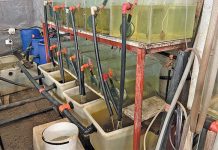The department of agriculture is treating recent newspaper reports that the EU is considering banning ostrich exports “like a rumour” said the department’s head of communications Tstotso Sehoole.
AS he said the department has not received any official correspondence from the EU. R ecent reports indicated that the EU’s health and consumer directorate is set to make a decision on ostrich exports from South Africa, after a visit by a team from the European Commission’s food and veterinary office to investigate health and safety measures. ehoole emphasised that the possibility of suspending the ban on game was discussed during this visit, but that ostriches were not under discussion. – Drieka Burger
EU game inspection was ‘quite positive’
THE BAN ON THE export of game to the could be about to be suspended. Tstotso Sehoole, chief of communications at the agriculture department, described as “quite positive” the recent inspection into wild game and ostrich farming in SA, conducted by a team from the European Commission’s food and veterinary office.
Game exports were banned after the claimed not to have received residue reports from the department. The inspection team reported that “the overall situation regarding residue controls in farmed and wild game has improved since 2007”. It added that guarantees provided to the Commission have largely been implemented. The inspection identified shortcomings in laboratory performance with regard to ostrich and wild game for meat production.
However, despite these, the current residue control system provides guarantees with an effect at least equivalent to those provided by the council directive 96/23/EC. This directive determines the requirements that must be met in terms of the planning and execution of national residue-control plans for live animals, and products of animal origin, which are exported to the EU. – Drieka Burger
SADC Tribunal hearsZimbabwean farmer’s case
On 16 AND 17 JULY, THE SADC TRIBUNAL considered various aspects of the Campbell family’s case contesting their farm’s expropriation by the Zimbabwean government. The tribunal has since adjourned to consider its verdict. Essentially, the Campbells’ case objects to provisions of the 17th Amendment to the Zimbabwean constitution, which prohibits former owners from challenging the farm acquisitions effected under that amendment.
Subsidiary objections contended that the racially-based approach to land reform and failure to pay compensation also rendered the acquisition legally defective. The applicants argued that these aspects opposed the terms of the SADC Treaty to which Zimbabwe is a party. The essence of the state’s reply has been that the treaty is not part of Zimbabwean law, that the legislature is free to determine the country’s constitution and laws and that the tribunal has no power over the Zimbabwean government.
The Campbells are seeking a declaration that their farm Mt Carmel near Chegutu has been unlawfully acquired and an order that they be allowed to continue farming operations. While awaiting a decision, the Commercial Farmers’ Union of Zimbabwe implored its members not to invite irresponsible reaction. – Staff reporter








